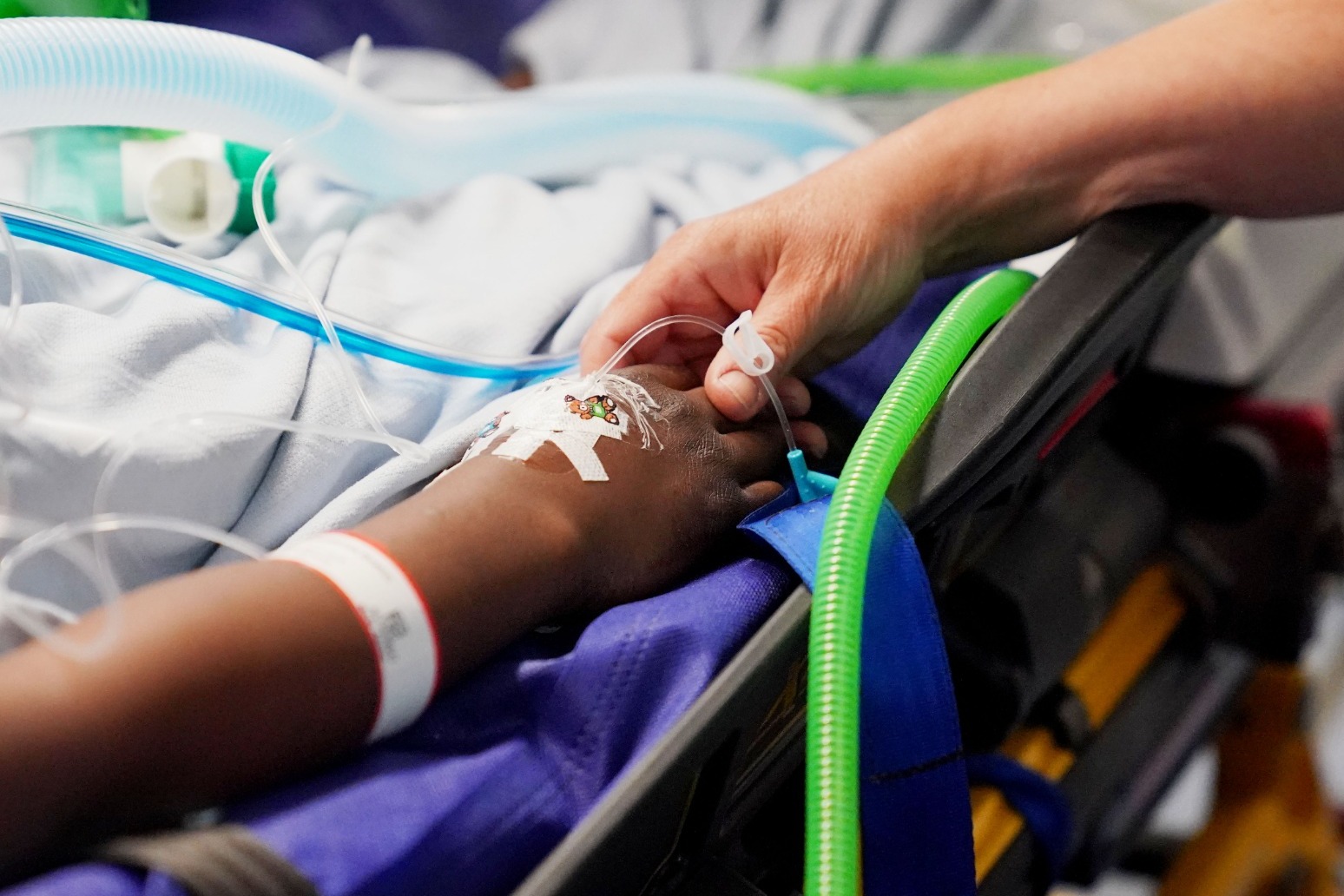
New NHS warning system for parents to help tackle ‘avoidable’ child deaths
A national system to ensure doctors and nurses act on parents’ concerns when they feel their child’s health is deteriorating is to be introduced by NHS England in a move experts say they hope will help stop “avoidable deaths”.
Experts said the National Paediatric Early Warning System will provide a straightforward way to track the vital signs of babies, children and teenagers.
Hospitals already have similar systems in place, but this change represents a national standard for patients, families and staff.
However, if a parent or carer raises concerns that their child is getting sicker than the score shows, care will be immediately escalated regardless of other clinical observations.
Professor Sir Stephen Powis, NHS national medical director, said: “We know that nobody can spot the signs of a child getting sicker better than their parents, which is why we have ensured that the concerns of families and carers are right at the heart of this new system with immediate escalation in a child’s care if they raise concerns and plans to incorporate the right to a second opinion as the system develops further.”
The roll-out comes after the Government committed to implementing Martha’s Rule in England’s hospitals, which will give patients the right to a second opinion if they believe their concerns are being dismissed by NHS staff.
Martha Mills, 13, died in 2021 after developing sepsis and a year later a coroner ruled she would most likely have survived if doctors had identified the warning signs and transferred her to intensive care earlier.
Her mother, Merope, has since campaigned for more power to be put back into the hands of patients and families.
NHS England said it will implement any guidance from Martha’s Rule within the National Paediatric Early Warning System as it develops.
Under the new standard, doctors and nurses will track a child’s blood pressure, heart rate, oxygen levels and levels of consciousness, with different scores representing the level of concern.
There are also four different age ranges; newborn to 11 months, one to four years, five to 12 years, and 13 and over.
Health minister Maria Caulfield said the system will “save lives”.
She added: “We know from the tragic case of Martha Mills that it’s vital to give parents a voice when it comes to the care of their child and so it will be reassuring to families that as part of this system, parents will be heard.”
Ron Daniels, founder and joint chief executive of the UK Sepsis Trust, said: “We welcome the news that children admitted to NHS hospitals are now going to benefit from a nationally standardised early warning score, just as we’ve had for adults for some years.
“However, just as in adults, the score alone will not prevent unrecognised deterioration.
“Alongside this it’s imperative that not only do staff receive the right training in the use of the tool but also that they’re working in organisational cultures which empower them to act rapidly, escalate to seniors and – most importantly – listen to parents and carers.
“We see far too many avoidable deaths from children within our NHS each year. We hope that this announcement will provide one small part of the solution to stopping that.”
Wendy Preston, head of nursing practice at the Royal College of Nursing, said parents “must be able to raise the alarm if their child is becoming seriously unwell”.
She added: “In the past children have needlessly, and tragically died. Nursing is a safety-critical profession, and we have been calling for a standardised warning system in the NHS to try and stop such tragic cases from ever happening again.”
Ms Preston said the system must be “implemented successfully” across the NHS and called for “investment in the training and education of staff” to ensure “they can use the new warning system to act swiftly when a patient’s condition deteriorates”.
Professor Simon Kenny, NHS national clinical director for children and young people, said the move will give NHS teams a “straightforward, standard” scoring system.
He added: “This new process is the result of extensive work by NHS England, the Royal College of Paediatric Child Health and the Royal College of Nursing and will be invaluable for both NHS staff and patients, helping to create a ‘common language’ as part of the process in tracking any signs of deterioration and triggering escalation if needed.”
Published: by Radio NewsHub